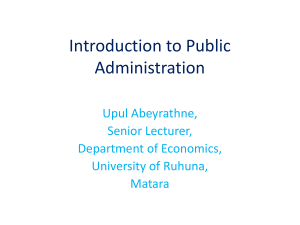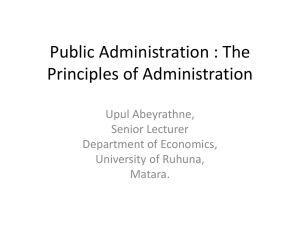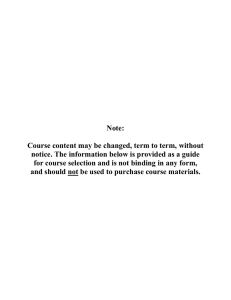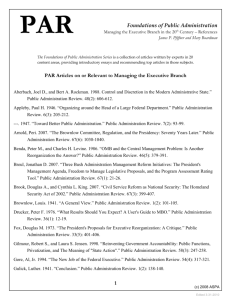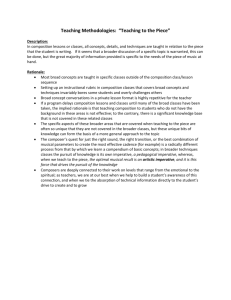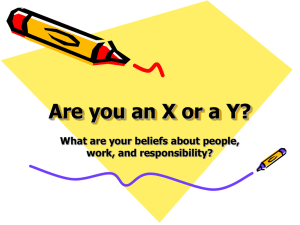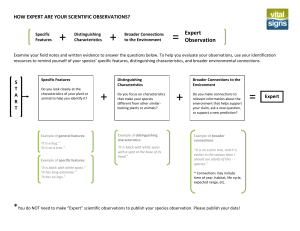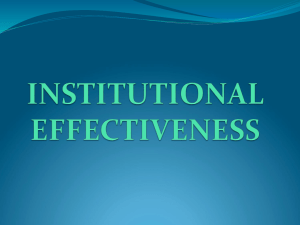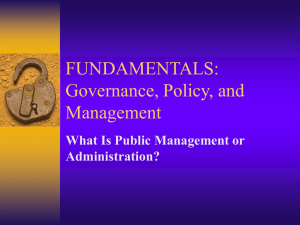Public Administration: An Introduction
advertisement
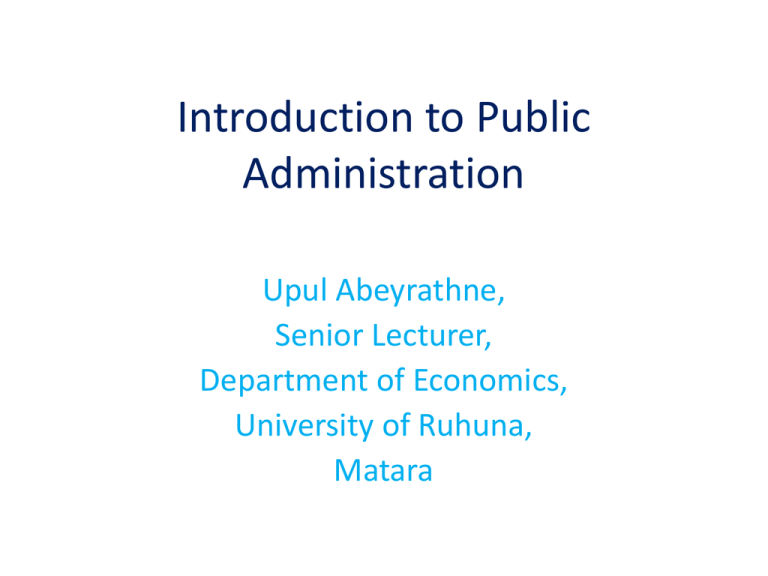
Introduction to Public Administration Upul Abeyrathne, Senior Lecturer, Department of Economics, University of Ruhuna, Matara Objectives • To Introduce the academic discipline of public administration • To distinguish between administration activity and study of public administration • To Examine the nature of public administration Expected outcomes • Capacity to demarcate between public administrative activity and academic discipline • Capacity to understand the complexity of modern public administration Administrative Activity • As an activity, public administration is old as the human civilization itself. The academic discipline of public administration is just hundred years old. • However, modern public administration differs considerably from the ancient and medieval form of public administration • They were authoritarian, patriarchal and elitist in character • Major concerns of the earlier public administration have been the maintenance of law and order, collection of revenue, while the welfare has been purely incidental or optionally undertaken • Administrators were small in numbers • The administrators were selected at the discretion of the monarch or ruler or king. • They were just personal servants of the king • The officials had been hereditary. The impacts on the government • Governmental problems have become all encompassing • It touches our lives from cradle to grave. Some times even before we are born and after we die • This implies a multiplication of state functions and these functions are highly specialized • The former system of bureaucracy has become inadequate and incompetent to deal with the complex political and public problems of modern world. • The form of the public administration has become that of a public bureaucracy • They are recruited on the basis of public law • They perform within a legal framework • The administration of the state has become more and more public oriented. Modern Public Administration includes traditional role + New Functions • Public Services like roads and transport • The main instruments of socio-economic transformation • The relative decline of traditional social bonds have to be substitute by the state • Taking care of the weaker section of society, husbandry and midwifery. The Increasing complexity of public problems enlarge the role of public administration Gerald Caiden (1971) The Dynamics of Public Administration: Guidelines to current Transformation in Theory and Practice , Rinehart and Winston, New Delhi pp. 25 1. Preservation of the polity 2. Maintenance of stability and order 3. Institutionalization of socioeconomic change 4. Management of large-scale commercial services 5. Ensuring Growth and Economic Development 6. Protection of Weaker sections of society 7. Formation of Public Administration 8. Influencing Public Policies and Political Trends Meaning and Definition • Public administration is the management of affairs at all level of government • Public administration is wider field of administration Sample Definitions • Administration is determined action taken in pursuit of a conscious purpose. It is the systematic ordering of affairs and calculated use of resources aimed at making those things happen which one wants to happen (F. M. Marx,1964) • This definition highlights • Administration is concerned with achivement of given purpose • It involves organization • Economy • Effectiveness • Administration is getting thins done; not doing. • “Administration is the organization and direction of human and material resources to achieve desired ends” (J.M. Pfiffner,1960). • 1. Cooperative effort • 2. Pursuit of common objectives Two Perspectives on the Scope and Range of Activities 1. Broader Perspective: Include all the activities having for their purpose the fulfillment of public policy. 2. Narrow Perspective: Only the activities concerned with the executive branch of government. Broader Perspective • “Public Administration is detailed and systematic application of law’” (Woodrow Wilson, 1887) • “Public Administration consits of all those operations having for their purpose the fulfillment or enforcement of public policy as declared by a competent authority” (L.D. White, 1926) Broader Perspective • The above authors had equated the sphere of activity with the implementation of law and public policy Narrow Perspective • They equate the public administration with the functions and activities of the executive only. • Emphasizes the managerial aspects Examples • “ Administration consist of getting things done by coordinating the efforts of the people so that they can work together to accomplish set tasks. (J.M. Pfiffner, 1960) Specific Environment of Public Administration makes different from the general study of administration • Public administration • a) is a cooperative group efforts in a public setting • B) covers all the three branches-executive, legislative and judicial -and their interrelationships; • C) has an important role in the formulation of public policy and is thus a part of the political process, • D) is more than and different in significant ways from private administration • E) As a field of study and practice has been much influenced in recent years by the human relations approach • F). Is closely associated with numerous private groups and individuals in providing services to the community (Felix A Nigro, 1965. 12 • Covers both perspectives discussed above • Public administration operates in a political setting • Managing the set objectives in public policy in this political context is specific. Scope of the study • At fullest range, public administration embraces every era and activity under the jurisdiction of public policy….. By established usage, the term has come to signify primarily the organization, personnel practices and procedures essential to effective performance of the civilian functions entrusted to the executive branch of government (F.M. Marx, 1964. 5) The what and the how • Pfiffner identify that public administration is concerned with what and how of the government. The What • Technical knowledge of a field which enables an administrator to perform his task (Subject matter) • There are four groupings of subject matter • 1. What government does- determination of objectives, internal administrative policies and plans and range of governmental business. • 2. How a government organizes its staff, and finances its work that is the structure of government organizations • 3. How administrators secure cooperation and teamwork . Study of such problems as administrative responsibility, leadership, direction, coordination, delegation, headquarters-field relationships, supervision and public relations • 4. How administration is held accountable? This means study of internal control, and control of administrative activities by the legislature and the courts. How of the administration • Techniques of management • POSDCoRB theory • Thank You
